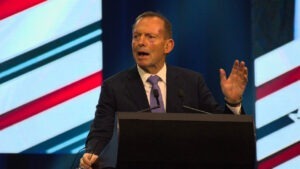
James Skinner
James is the Founder & Chief Executive of
CANZUK International in Vancouver, Canada
With the Australia-UK trade deal negotiated in principle, we break down the provisions of the new agreement and what they mean for citizens of Australia and the United Kingdom in the months and years ahead.
After months of negotiations, Australia and the United Kingdom accepted an in principle trade agreement in June 2021.
The deal was praised as a landmark arrangement between the two allies, with Australia’s Prime Minister, Scott Morrison, confirming that only New Zealand’s agreement with Australia could come close to comparison.
Unlike all other post-Brexit arrangements negotiated by the UK, the Australia deal included extensive measures to liberalize the trade of goods and services, and advance mobility and pathways to citizenship through greater visa access for citizens.
In short, the agreement provides the ideal template for future agreements with Canada and New Zealand, setting the foundations for CANZUK in the coming years.
The following are specific provisions included in the deal and the opportunities they provide for Australian and British citizens:
1. Tariff removal for non-competing goods
The export of all Australian goods which have no or minimal impact on UK producers, such as wine, short-grain rice and medium-grain rice, are proposed to be tariff-free.
To provide UK farmers time to adapt to the increased competition, “sensitive goods” will be subject to yearly duty-free quotas, which will progressively increase over time until completely removed in 15 years. All imports from the UK, including cars, scotch whiskey and confectionary products, will benefit from full liberalization from the commencement of the agreement.
2. Less red tape for Australian small and medium enterprises (SMEs)
Australian SMEs that already export, or wish to export, to the UK will benefit from the removal of red tape and the reduction of bureaucratic requirements. They will also benefit from quicker export times and streamlined export processes.
3. Uniform rules to facilitate the free trade of services
The implementation of uniform policies for all service sectors will provide Australian and UK professionals, and companies with transparency, guaranteed market access and non-discriminatory treatment when operating in each other’s markets. Important sectors to benefit include:
4. Increased mobility for citizens
Australia and the UK are determined to enhance opportunities for travel within 5 years of enacting the free trade agreement. This will be achieved by:
Additionally, the agreement will outline visa pathways to facilitate mobility of those involved in the agriculture sector and seek to enable workplace exchanges which facilitate career mobility for those in industry, culture and the arts.
This will undoubtedly provide an ideal template upon which similar arrangements can be negotiated with Canada and New Zealand, and further development policies towards free movement for all CANZUK citizens between the four countries.
5. Enhancement of digital trade and data protection
Initiatives to enhance opportunities for digital trade across all sectors will include:
6. Supporting research, development and trade of environmental goods and services
The agreement will focus on bilateral trade and investment of environmental good and services, and cooperation in research and development of key technologies to transition to a greener economy.
Although the Australia-UK trade agreement is agreed in principle, both governments are expected to ratify the deal as soon as possible, bringing significant benefits and opportunities to Australian and British citizens by the end of 2021.
The deal was praised as a landmark arrangement between the two allies, with Australia’s Prime Minister, Scott Morrison, confirming that only New Zealand’s agreement with Australia could come close to comparison.
Unlike all other post-Brexit arrangements negotiated by the UK, the Australia deal included extensive measures to liberalize the trade of goods and services, and advance mobility and pathways to citizenship through greater visa access for citizens.
In short, the agreement provides the ideal template for future agreements with Canada and New Zealand, setting the foundations for CANZUK in the coming years.
The following are specific provisions included in the deal and the opportunities they provide for Australian and British citizens:
1. Tariff removal for non-competing goods
The export of all Australian goods which have no or minimal impact on UK producers, such as wine, short-grain rice and medium-grain rice, are proposed to be tariff-free.
To provide UK farmers time to adapt to the increased competition, “sensitive goods” will be subject to yearly duty-free quotas, which will progressively increase over time until completely removed in 15 years. All imports from the UK, including cars, scotch whiskey and confectionary products, will benefit from full liberalization from the commencement of the agreement.
2. Less red tape for Australian small and medium enterprises (SMEs)
Australian SMEs that already export, or wish to export, to the UK will benefit from the removal of red tape and the reduction of bureaucratic requirements. They will also benefit from quicker export times and streamlined export processes.
3. Uniform rules to facilitate the free trade of services
The implementation of uniform policies for all service sectors will provide Australian and UK professionals, and companies with transparency, guaranteed market access and non-discriminatory treatment when operating in each other’s markets. Important sectors to benefit include:
- Financial services – the two countries will implement frameworks that allow financial service suppliers to move their back-office functions offshore and avoid the imposition of arbitrary requirements;
- Legal – lawyers will have the ability to practise in both countries as qualifications will be recognized, similar to Australia’s current arrangement with New Zealand; and
- Telecommunications – Australia and the UK will provide access to each other’s public telecommunication networks and services on a non-discriminatory basis.
4. Increased mobility for citizens
Australia and the UK are determined to enhance opportunities for travel within 5 years of enacting the free trade agreement. This will be achieved by:
- allowing companies to sponsor foreign employees without the need to prove that a local resident could not be hired to do the job;
- guaranteeing visas for service suppliers in certain nominated sectors;
- increasing the age cut-off for the countries’ mutual youth mobility schemes to 35 years of age and allowing a total stay of up to 3 years without having to undertake specified work (such as regional or farm work).
Additionally, the agreement will outline visa pathways to facilitate mobility of those involved in the agriculture sector and seek to enable workplace exchanges which facilitate career mobility for those in industry, culture and the arts.
This will undoubtedly provide an ideal template upon which similar arrangements can be negotiated with Canada and New Zealand, and further development policies towards free movement for all CANZUK citizens between the four countries.
5. Enhancement of digital trade and data protection
Initiatives to enhance opportunities for digital trade across all sectors will include:
- the acceptance of electronic contracts and signatures, and the adoption of interoperable electronic invoicing frameworks to facilitate electronic transactions;
- a digital consumer identification framework to help reduce cybercrime, enabling consumers to buy from businesses across the two nations with greater confidence;
- the prevention of forced transfer of Source Code and Encryption Keys (subject to legitimate scrutiny by authorities) to protect innovation; and
- the adoption of measures to enable cross-border data flows while ensuring high standards of protection for both personal and commercial data.
6. Supporting research, development and trade of environmental goods and services
The agreement will focus on bilateral trade and investment of environmental good and services, and cooperation in research and development of key technologies to transition to a greener economy.
Although the Australia-UK trade agreement is agreed in principle, both governments are expected to ratify the deal as soon as possible, bringing significant benefits and opportunities to Australian and British citizens by the end of 2021.
Share this:
Facebook
Twitter
LinkedIn
WhatsApp
Email




